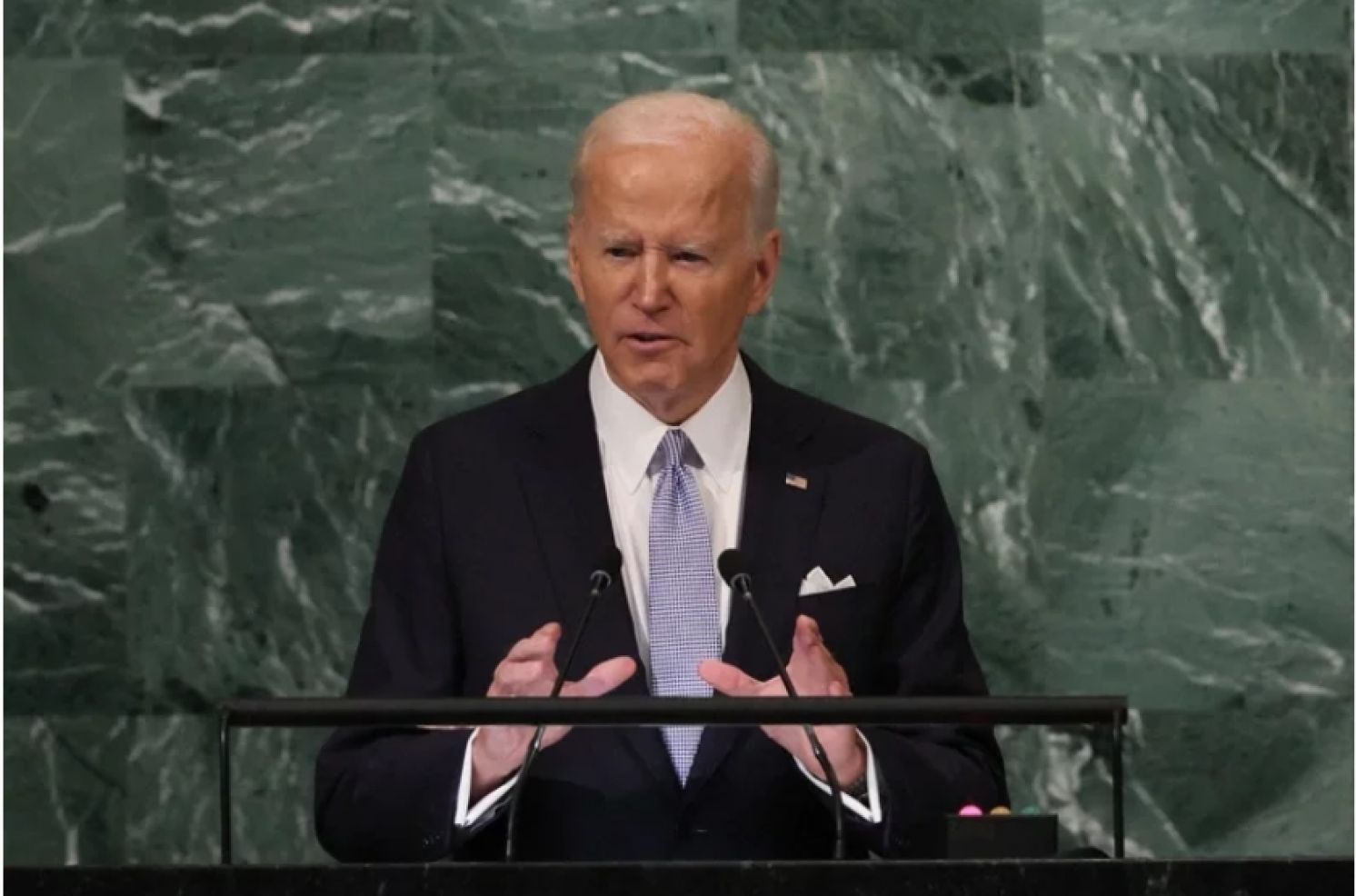
President Biden's Comments on Taiwan Strait A Good Thing?
By Lee Cheng-hsiu
China Times, September 24, 2022
At the United Nations General Assembly on September 21, President Joe Biden reiterated that the United States remains committed to its “One China”. He also stated that the United States continues to oppose unilateral changes in the status quo by either side of the Taiwan Strait and the United States seeks to uphold peace and stability across the Taiwan Strait. The Ministry of Foreign Affairs (MOFA) stated that President Biden is the first American president to speak on Taiwan Strait situation at the UN, so MOFA deeply appreciated his remarks. However, MOFA intentionally omitted to mention that President Biden said that the United States remains committed to its “One China” policy in the speech.
In an earlier media interview, President Biden said that if there was an attack on Taiwan by China, the U.S. forces would seek to defend Taiwan. This was the fourth time that President Biden publicly said the United States would send troops to help Taiwan and his remarks had caused discussions. MOFA expressed its sincere appreciation to President Biden’s commitment on Taiwan’s security. Later on, however, White House National Security Advisor Jake Sullivan and Coordinator for the Indo-Pacific Kurt Campbell both reiterated that the U.S. policy towards Taiwan remained unchanged. As President Biden again emphasized in his U.N. speech that the United States remains committed to its One China policy, so the administration of President Tsai Ing-wen had misjudged that American cross-strait strategy had become clearer.
From MOFA’s response to President Biden’s remarks at the UN, the Tsai administration still lives in the delusion that the United States would send troops to help Taiwan, but they ignored President Biden’s big strategic framework in the same speech that the United States remains committed to its One China policy and the United States does not seek conflict with China, or seek a new Cold War, or ask any nation to choose between the United States or any partner. The Tsai administration’s impractical approach that resorts to ideology has misled our people and is not beneficial to Taiwan.
Before the Senate Foreign Affairs Committee deliberated the Taiwan Policy Act (TPA), some officials in the Biden administration publicly stated that certain highly sensitive parts in the TPA would undermine peace in the Taiwan Strait; their purpose was to provide preventive measures in lowering risks of conflict between the United States and China. The Department of State announced the day after President Biden’s address at the UN that Secretary of State Antony Blinken would meet with mainland China’s Minister of Foreign Affairs Wang Yi on September 23. The State Department’s early announcement of the meeting may signify that the United States intends to promote mutual trust and understanding with China through the Sullivan-Wang meeting and may prepare negotiations for the November summit between Presidents Biden and Xi Jinping. This means that both the United States and China intend to build guardrails to prevent deterioration of bilateral relations.
With the coming of the mid-term elections of the Congress and out of political considerations, President Biden said during media interview that the United States would send troops to help Taiwan. Let’s not forget that President Biden had voted for the passage of the Taiwan Relations Act but he had also opposed President George W. Bush administration’s commitment that publicly supported the defense of Taiwan; so he understands the sensitivity of cross-strait issues. In contrast to his media interview, President Biden’s formal remarks at the UN General Assembly that the United States remains committed to its “One China” policy is the official policy statement of the United States.
The Tsai administration should not be excited that the U.S. president first mentioned the Taiwan Strait situation at the UN General Assembly. From another angle, this means that Taiwan Strait has become an international focus. If the current situation is not dangerous, does President Biden need to mention it at the U.N. General Assembly? The Tsai administration should be cautious and afraid of this matter.
Many American scholars indicated that in contrast to President Biden’s oral commitment to protect Taiwan, the important thing is whether the American troops have the capabilities to deter or defeat China’s military forces. But the Tsai administration only values U.S. oral support. American officials have also told the news media that the United States would not provide more new capabilities to Taiwan that could escalate U.S.-China tensions. Therefore, can the Tsai administration be happy about this?
The author is associate researcher at the National Policy Foundation.
From: https://www.chinatimes.com/newspapers/20220924000444-260109